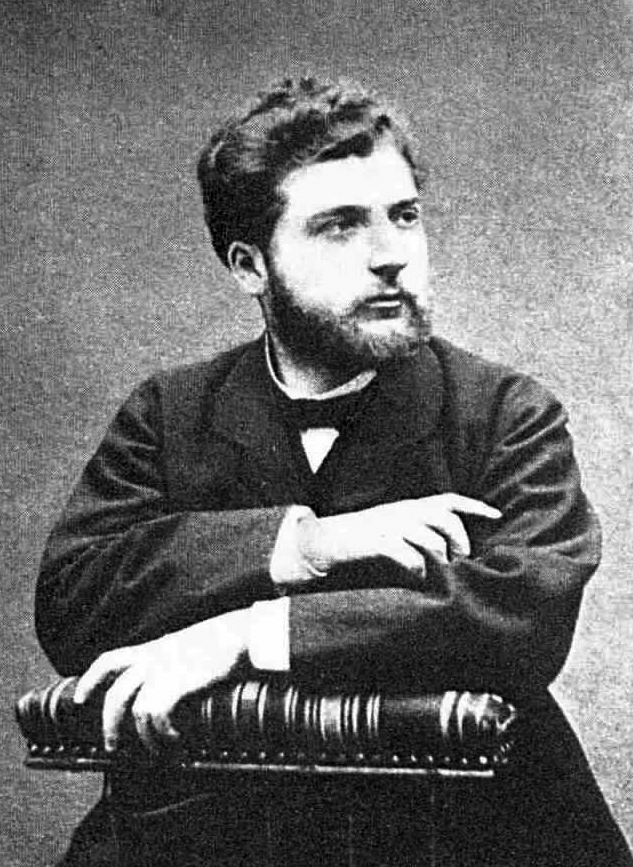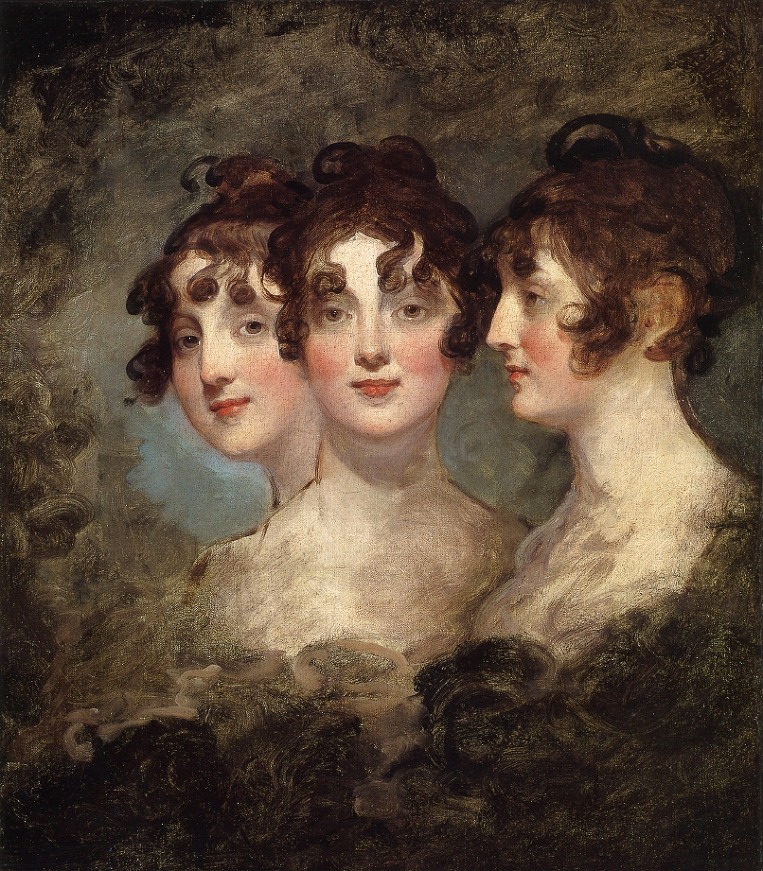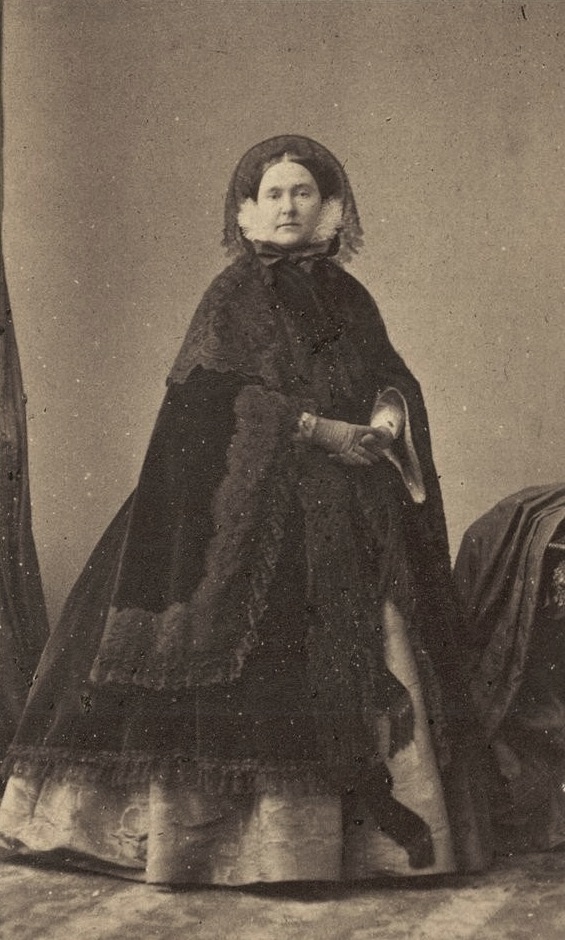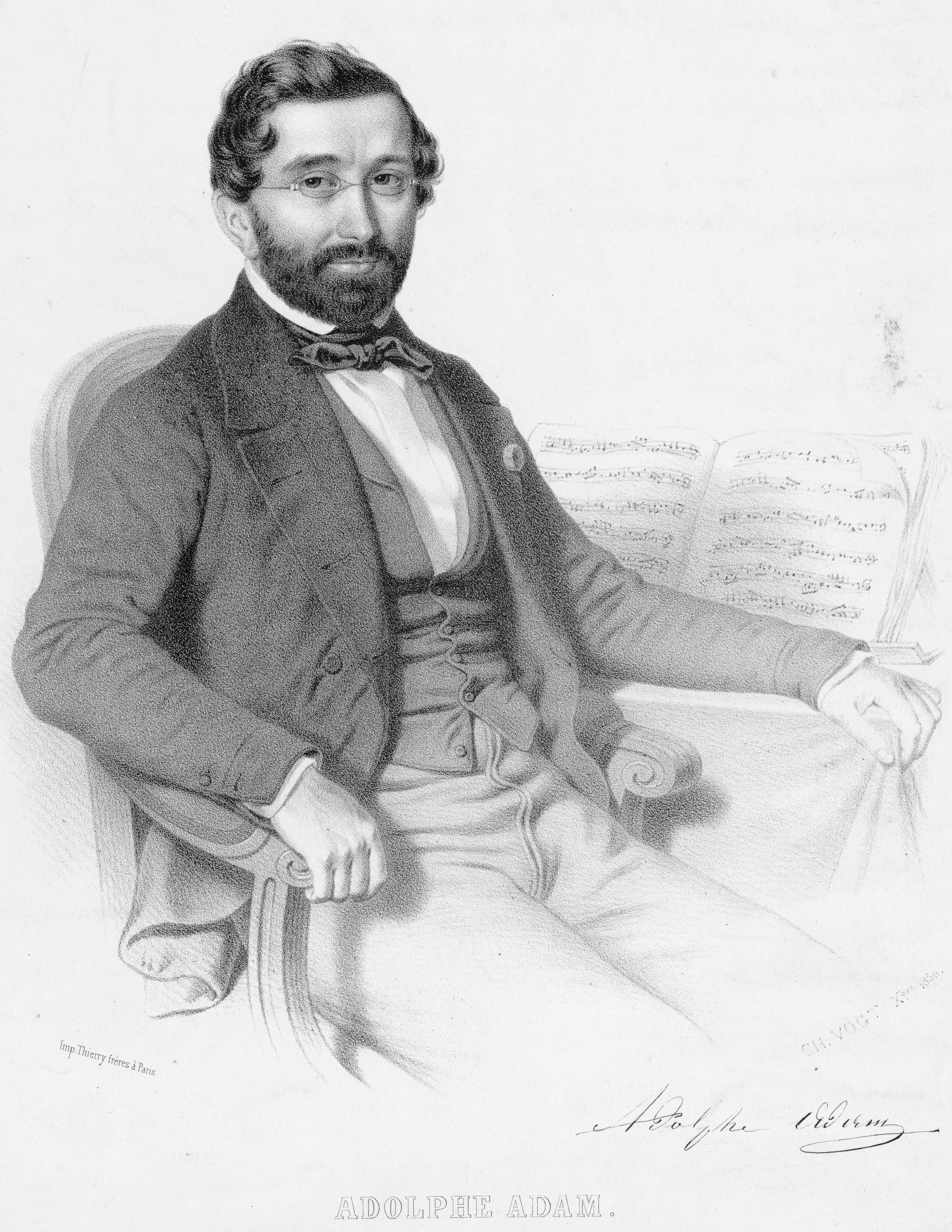|
Thﺣ۸ﺣ۱tre Lyrique
The Thﺣ۸ﺣ۱tre Lyrique was one of four opera companies performing in Paris during the middle of the 19th century (the other three being the Opﺣ۸ra, the Opﺣ۸ra-Comique, and the Thﺣ۸ﺣ۱tre-Italien). The company was founded in 1847 as the Opﺣ۸ra-National by the French composer Adolphe Adam and renamed Thﺣ۸ﺣ۱tre Lyrique in 1852. It used four different theatres in succession, the Cirque Olympique, the Thﺣ۸ﺣ۱tre Historique, the Salle du Thﺣ۸ﺣ۱tre-Lyrique (now the Thﺣ۸ﺣ۱tre de la Ville), and the Salle de l'Athﺣ۸nﺣ۸e, until it ceased operations in 1872.Charlton 1992, p. 871. The diverse repertoire of the company "cracked the strict organization of the Parisian operatic world by breaking away from the principle that institution and genre were of one substance." The company was generally most successful with revivals of foreign works translated into French, particularly operas by Gluck, Mozart, Weber, and Verdi, but probably is most remembered today for having given the first perf ... [...More Info...] [...Related Items...] OR: [Wikipedia] [Google] [Baidu] |
Les Pﺣ۹cheurs De Perles
' (''The Pearl Fishers'') is an opera in three acts by the French composer Georges Bizet, to a libretto by Eugﺣ۷ne Cormon and Michel Carrﺣ۸. It was premiered on 30 September 1863 at the Thﺣ۸ﺣ۱tre Lyrique in Paris, and was given 18 performances in its initial run. Set in ancient times on the island of Ceylon (Sri Lanka), the opera tells the story of how two men's vow of eternal friendship is threatened by their love for the same woman, whose own dilemma is the conflict between secular love and her sacred oath as a priestess. The friendship duet "", generally known as "The Pearl Fishers Duet", is one of the best-known in Western opera. At the time of the premiere, Bizet (born on 25 October 1838) was not yet 25 years old: he had yet to establish himself in the Parisian musical world. The commission to write ' arose from his standing as a former winner of the prestigious Prix de Rome. Despite a good reception by the public, press reactions to the work were generally hostile and dis ... [...More Info...] [...Related Items...] OR: [Wikipedia] [Google] [Baidu] |
Second French Empire
The Second French Empire (; officially the French Empire, ), was the 18-year Imperial Bonapartist regime of Napoleon III from 14 January 1852 to 27 October 1870, between the Second and the Third Republic of France. Historians in the 1930s and 1940s often disparaged the Second Empire as a precursor of fascism. That interpretation is no longer widely held, and by the late 20th century they were giving it as an example of a modernising regime. Historians have generally given the Empire negative evaluations on its foreign policy, and somewhat more positive evaluations of domestic policies, especially after Napoleon III liberalised his rule after 1858. He promoted French business and exports. The greatest achievements included a grand railway network that facilitated commerce and tied the nation together with Paris as its hub. This stimulated economic growth and brought prosperity to most regions of the country. The Second Empire is given high credit for the rebuilding of Paris ... [...More Info...] [...Related Items...] OR: [Wikipedia] [Google] [Baidu] |
Napoleon III
Napoleon III (Charles Louis Napolﺣ۸on Bonaparte; 20 April 18089 January 1873) was the first President of France (as Louis-Napolﺣ۸on Bonaparte) from 1848 to 1852 and the last monarch of France as Emperor of the French from 1852 to 1870. A nephew of Napoleon I, he was the last monarch to rule over France. Elected to the presidency of the Second Republic in 1848, he seized power by force in 1851, when he could not constitutionally be reelected; he later proclaimed himself Emperor of the French. He founded the Second Empire, reigning until the defeat of the French Army and his capture by Prussia and its allies at the Battle of Sedan in 1870. Napoleon III was a popular monarch who oversaw the modernization of the French economy and filled Paris with new boulevards and parks. He expanded the French overseas empire, made the French merchant navy the second largest in the world, and engaged in the Second Italian War of Independence as well as the disastrous Franco-Prussian War, ... [...More Info...] [...Related Items...] OR: [Wikipedia] [Google] [Baidu] |
Jﺣ۸rﺣﺑme Bonaparte
Jﺣ۸rﺣﺑme-Napolﺣ۸on Bonaparte (born Girolamo Buonaparte; 15 November 1784 ﻗ 24 June 1860) was the youngest brother of Napoleon I and reigned as Jerome Napoleon I (formally Hieronymus Napoleon in German), King of Westphalia, between 1807 and 1813. Historian Owen Connelly points to his financial, military, and administrative successes and concludes he was a loyal, useful, and soldierly asset to Napoleon. Others, including historian Helen Jean Burn, have demonstrated his military failures, including a dismal career in the French navy that nearly escalated into war with Britain over an incident in the West Indies and his selfish concerns that led to the deaths of tens of thousands during the Russian invasion when he failed to provide military support as Napoleon had counted upon for his campaign; further, his addiction to spending led to both personal and national financial disasters, with his large personal debts repeatedly paid by family members including Napoleon, his mother, an ... [...More Info...] [...Related Items...] OR: [Wikipedia] [Google] [Baidu] |
Mathilde Bonaparte
Mathilde Laetitia Wilhelmine Bonaparte, Princesse Franﺣ۶aise, Princess of San Donato (27 May 1820 ﻗ 2 January 1904), was a French princess and salonniﺣ۷re. She was a daughter of Napoleon's brother Jﺣ۸rﺣﺑme Bonaparte and his second wife, Catharina of Wﺣﺙrttemberg, daughter of King Frederick I of Wﺣﺙrttemberg. Biography Born in Trieste, Mathilde Bonaparte was raised in Florence and Rome. She was originally engaged to her first cousin, the future Napoleon III of France, but the engagement was cancelled following his imprisonment at Ham. She married a rich Russian nobleman, Anatoly Nikolaievich Demidov, 1st Prince of San Donato, on November 1, 1840 in Rome. Anatole was raised to the position of ''Prince'' by Grand Duke Leopold II of Tuscany shortly before the wedding to fulfill the wishes of Mathilde's father and to preserve Mathilde's position as ''Princess''. Anatole's princely title was never recognised in Russia. They had no children. The marriage between these two ... [...More Info...] [...Related Items...] OR: [Wikipedia] [Google] [Baidu] |
Si J'ﺣ۸tais Roi
''Si j'ﺣ۸tais roi'' (English: ''If I Were King'') is an opﺣ۸ra comique in three acts by Adolphe Adam. The libretto was written by Adolphe d'Ennery and Jules-Henri Brﺣ۸sil. It was first performed in Paris at the Thﺣ۸ﺣ۱tre Lyrique (Thﺣ۸ﺣ۱tre-Historique, Boulevard du Temple) on 4 September 1852, opening with a dual cast to allow performance on successive evenings (it made up half of all performances at the Thﺣ۸ﺣ۱tre Lyrique in the last four months of the year and reached over 170 performances in its first ten years). The production was considered lavish, with expensive costumes and jewels being worn by the cast. It was then staged in Brussels (1853), New Orleans (1856), Turin (1858) and Soerabaya (1864).Loewenberg A. Annals of Opera. London, John Calder, 1978. Though less popular than '' Le postillon de Lonjumeau'', it is often regarded as Adam's finest work. The well-developed overture was once very popular, particularly on recordings. Vocal highlights include the soprano ai ... [...More Info...] [...Related Items...] OR: [Wikipedia] [Google] [Baidu] |
Opﺣ۸ra Comique
''Opﺣ۸ra comique'' (; plural: ''opﺣ۸ras comiques'') is a genre of French opera that contains spoken dialogue and arias. It emerged from the popular '' opﺣ۸ras comiques en vaudevilles'' of the Fair Theatres of St Germain and St Laurent (and to a lesser extent the Comﺣ۸die-Italienne), M. Elizabeth C. Bartlet and Richard Langham Smith"Opﺣ۸ra comique" '' Grove Music Online''. Oxford Music Online. 19 November 2009 which combined existing popular tunes with spoken sections. Associated with the Paris theatre of the same name, ''opﺣ۸ra comique'' is not necessarily comical or shallow in nature; '' Carmen'', perhaps the most famous ''opﺣ۸ra comique'', is a tragedy. Use of the term The term ''opﺣ۸ra comique'' is complex in meaning and cannot simply be translated as "comic opera". The genre originated in the early 18th century with humorous and satirical plays performed at the theatres of the Paris fairs which contained songs ('' vaudevilles''), with new words set to already existing musi ... [...More Info...] [...Related Items...] OR: [Wikipedia] [Google] [Baidu] |
Jules Seveste
Jules Seveste, full name Dﺣ۸sirﺣ۸ Henri Jules Seveste, ( Paris, 1803 ﻗ Meudon, 30 June 1854 ) was a French playwright and theatre manager of the first half of the 19th century. Short biography In 1822 his father Pierre Seveste (1773ﻗ1825) appointed Jules and his brother Edmond to his theatre agency (founded c. 1810) which in 1817 had been granted a privilege to open suburban theaters.McCormick 1995. Pierre had opened the Thﺣ۸ﺣ۱tre Montparnasse in 1819, and he and his sons opened the Thﺣ۸ﺣ۱tre de Montmartre in 1822. After Pierre's death, his widow and sons opened the Thﺣ۸ﺣ۱tre de Belleville in 1827 and the Thﺣ۸ﺣ۱tre Grenelle in 1830. In 1848, Jules asked for the reopening of the Belleville and Montmartre theatres. On 1 September 1852, Jules succeeded his brother Edmond as managing director of the Opﺣ۸ra-National, after Adolphe Adam refused the position. On 12 April 1853, he renamed it Thﺣ۸ﺣ۱tre Lyrique. Jules Verne, co-librettist with Michel Carrﺣ۸ of the one-act opﺣ۸ra- ... [...More Info...] [...Related Items...] OR: [Wikipedia] [Google] [Baidu] |
Boulevard Du Temple
The Boulevard du Temple, formerly nicknamed the " Boulevard du Crime", is a thoroughfare in Paris that separates the 3rd arrondissement from the 11th. It runs from the Place de la Rﺣ۸publique to the Place Pasdeloup, and its name refers to the nearby Knights Templars' Temple where they established their Paris priory. History The Boulevard du Temple follows the path of the city wall constructed by Charles V (the so-called '' Enceinte'', constructed between 1356 and 1383) and demolished under Louis XIV. The boulevard, lined with trees, was built between 1656 and 1705. From the time of Louis XVI (1774ﻗ1792) until the July Monarchy in 1830, the Boulevard du Temple was popular and fashionable. It was a place for walking and recreation. Cafﺣ۸s and theatres previously located at the Saint-Laurent and Saint-Germain fairs moved here. After a time, it was nicknamed the '' Boulevard du Crime'' after the crime melodramas that were so popular in its many theatres. In 1782, Philipp ... [...More Info...] [...Related Items...] OR: [Wikipedia] [Google] [Baidu] |
Scene From 'Si J'ﺣ۸tais Roi' By Adolphe Adam - Gallica
Scene (from Greek ﺵﺳﭦﺳﺓﺳﺛﺳ؟ ''skﺥnﻕﺕ'') may refer to: Arts, entertainment, and media Music * Scene (subculture), a youth subculture from the early 2000s characterized by a distinct music and style. Groups and performers * The Scene who recorded the song "Scenes (from Another World)" * Scene, the stage name used by Japanese Punk guitarist Minoru Kojima * Selena Gomez & the Scene, an American band * The Scene (Canadian band), a late 1960s psychedelic Canadian band * The Scene (Dutch band), a Dutch band formed by Thﺣ۸ Lau Albums * ''Scene'', a 2005 noise album by Merzbow * ''Scenes'' (album), a 1992 music album by Marty Friedman * ''The Scene'' (Eskimo Callboy album), an Eskimo Callboy album * ''The Scene'', the debut album of The Scene Other uses in music * S.C.E.N.E. Music Festival, an annual festival held in downtown St. Catharines, Ontario, Canada * "The Scene" (song), a song by Canadian band Big Sugar from their 1998 album ''Heated'' Periodicals * ''Scene'' (see ... [...More Info...] [...Related Items...] OR: [Wikipedia] [Google] [Baidu] |
Albert Vizentini
Albert Vizentini was a French violinist, composer, conductor and music writer, born in Paris on 9 November 1841, and died there on 21 October 1906. His main centre of activity was the French capital, but he also worked for ten years in Russia and toured in Britain and Ireland.Martin J. ''Nos artistes ; portraits et biographies.'' Paul Ollendorff, Paris, 1895. Life and career Vizentini came from an Italian musical family active in the theatre, one of whom had established himself at the Comﺣ۸die-Italienne.Fﺣ۸tis F-J. ''Biographie universelle des musiciens.'' Vol II, 639-640. Paris, 1878. As a child he appeared in various childrenﻗs roles at the Thﺣ۸ﺣ۱tre de l'Odﺣ۸on, making his debut on 31 December 1847 in ''Le Dernier Banquet'', a revue by Camille Doucet. His father Augustin worked at the Vaudeville Theatre in Paris, then became stage manager in the last season of the Thﺣ۸ﺣ۱tre Lyrique. He undertook musical studies at the Conservatoire in Brussels, under Leonard and Fﺣ۸tis, ... [...More Info...] [...Related Items...] OR: [Wikipedia] [Google] [Baidu] |






.jpg)
